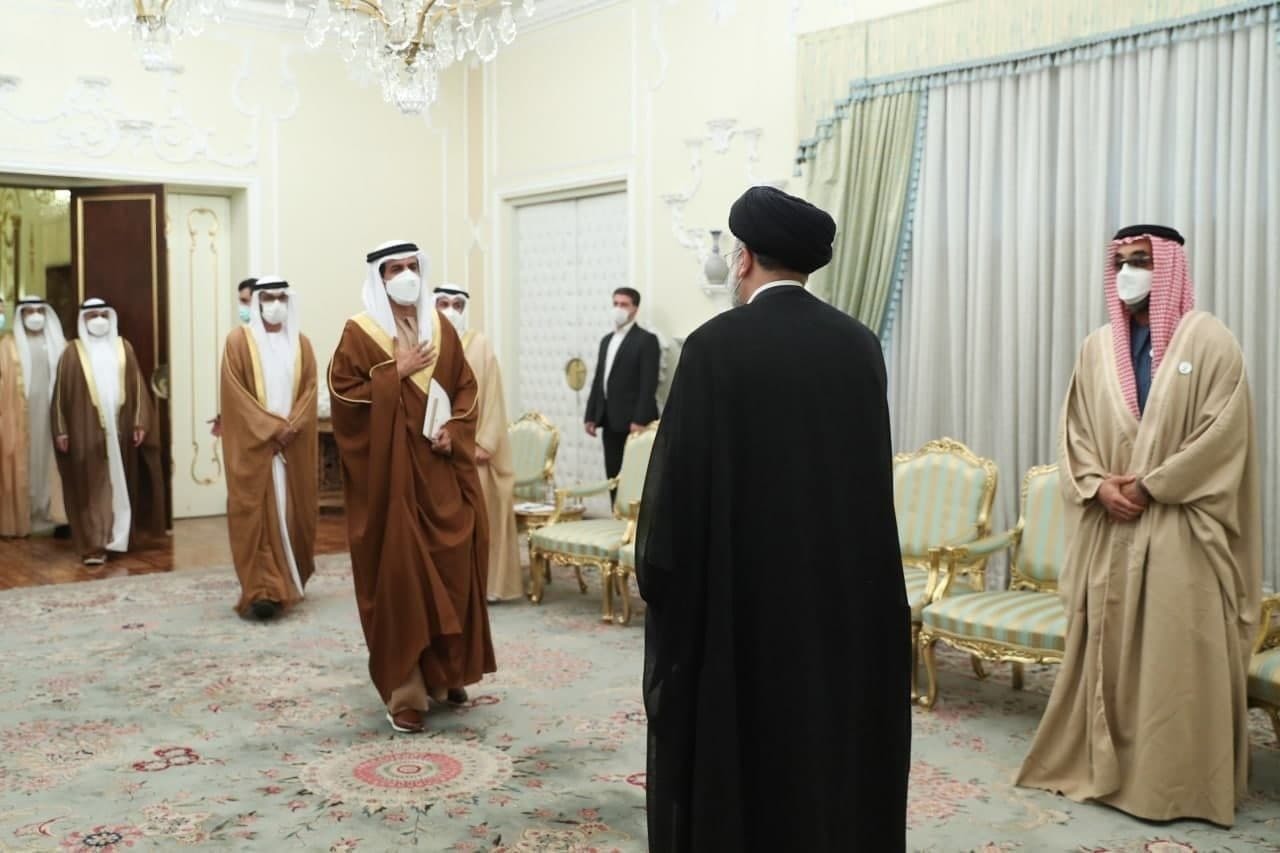There are three questions within this framework:
- Are we facing an upheaval change in the policies of these countries on Iran?
- If a new horizon could be expected in their relations?
- How this market could be opened to Iran? And Could it be benefitted?
To reply the first question, it must be emphasized that any change in the policy of Saudi Arabia and UAE towards the Islamic Republic of Iran is influenced by elements and variables that are embodied at three domestic, regional and international levels. The U.S. Administration strategy to revive Iran nuclear deal (widely known as JCPOA) and simultaneous reduction of political and military supports to the two players are considered to be very decisive variables to change the understanding of Riyadh and Abu Dhabi decision makers on receiving supports if they proceed with offensive foreign policy.
Second element is excessive crisis in the regional tension hotspots after a period of intensification of conflicts that have changed the ground for a transition from an offensive and warmongering strategy to the strategy of stabilization of influence and achievements. Third element is the necessity to have political stability to proceed with economic projects after a recession period caused by reduction of oil price and Covid-19 pandemic which in turn has doubled the necessity to increase and diversify incomes.
With this image, the second question can be replied by raising the important issue that whether integration among elements of the three levels could lead to rising new horizon between Iran and its Arab neighbors in the Persian Gulf? To reply, it must be underscored that the process of de-escalation of tension between Iran and Saudi Arabia from one hand, Iran and UAE from the other hand is a newly started process and it naturally suffers from fragility.
Particularly, because of its multi-level nature and being impressed by interventionist variables, the path to de-escalation of tension with Saudi Arabia even suffers from more fragility. And as long as it will not lead to resumption of bilateral relations and even a step further ahead. i.e. concluding a security agreement, there is always a potential to return to the previous tension, especially if Saudi Arabia manages to revive its relations with the U.S. under Biden Democrat Administration, then it will naturally lessen the likelihood of Saudi Arabia negotiation with Iran.
Therefore, Iran should understand the delicacies of flexibility in negotiations with Saudi Arabia and thus make more effort to find the right way to do business with this player. Because as non-oil economy in Saudi Arabia expands, the ground is suitably paved for $ 2 billion trade target between the two countries. Trade volume between Iran and Saudi Arabia was nearly $ 800 million in 2010, which was gradually reduced to $ 200 million impressed by international sanctions mood and regional tension. It has further reduced to nearly zero dollar within the recent years.
Therefore, having in mind the assumption that de-escalation of tension will lead to reopening of Iran and Saudi Arabia embassies and also upgrading the relations between Iran and UAE from Charge Affairs to Ambassadorial level, it is necessary that a few key measures will be taken by Iran in order to set the trade road map and to increase its economic cooperation.
First measure: is to define an export oriented strategy within the framework of neighborhood policy. It is necessary that President Raeissi cabinet, that emphasizes on Neighbors First policy, draws the ways and means as well as features of the strategy in economic field focused on potentials, identifying the opportunities and deregulations.
Second measure: is to provide coordination among relevant public economic forums and organizations with concentration on export, among which the Deputy Foreign Minister for Economic Diplomacy will be tasked to lead the meetings and coordination.
Third measure: is to link export oriented strategy and to make coordination among the public economic sectors with private sector. Supporting the businessmen and traders affiliated to the Chamber of Commerce, Industries, Mines and Agriculture of Iran through deregulation and removing impediments and problems of the sectors can pave the suitable ground to promote trade level.
Fourth: is to define and to take action in a more competitive atmosphere by private sector in view of the importance of quality of exportable goods and identifying the taste of the clients.










0 Comments